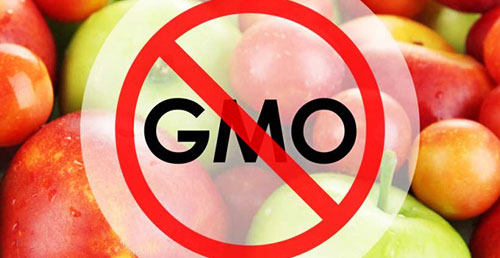|

by Mark DeNicola
October 16, 2015
from
Collective-Evolution Website

The battle against
Genetically Modified
Organisms continues to gain steam as two more European countries
have joined a rapidly growing list of nations enforcing some form of
a ban against the agricultural method.
Both Italy and Austria are now in the
process of banning GMO agriculture, joining a list of European
countries that includes,
France, Netherlands, Poland, Germany,
Ireland, Greece, and many more.
The widespread action is due in
large part to a newly created European Union rule that allows member
countries to individually opt out of growing GMO crops.
The most impressive and conclusive
action taken thus far globally
has been by Russia, which followed up
their
April 2014 announcement that they would be banning the import of
all GMO products with a promise to ban
GMO products altogether by the country’s Deputy Prime Minister
earlier this month.
With so many countries putting an end to
this agricultural method, the pressure is on for those who continue
to support GMO practices to consider otherwise.
The global success
of organized movements, such as the
March Against Monsanto, certainly makes it feel as if we are
very close to reaching a tipping point where GM methods will no
longer be accepted or stood for worldwide.
For those of us, myself included, who
live in a part of the world where GMO products are widely available
and even supported, it’s incredibly important that we vote with our
dollars.
Opt to buy organic and take the time to inform yourself of
what packaged foods are created without GM ingredients.
In most cases the cost differential
between the two options is not substantial, and even when it is,
natural foods are worth opting for when all of the potential
health implications are considered.
If buying completely organic is not
feasible given your financial situation, be sure to familiarize
yourself with
"the dirty dozen," the 12 most chemically ridden produce items:
-
Strawberries
-
Celery
-
Apples
-
Peaches
-
Spinach
-
Nectarines
-
Kale/collard greens
-
Sweet bell peppers
-
Lettuce
-
Blueberries
-
Potatoes
-
Grapes
Source
Start by making the switch to organic with even one of these 12 at a
time and gradually work your way up.
To see how much of an impact switching
to a completely organic diet can have on your health, I strongly
suggest that you check out
below video featuring the before and after results of a family
that made the shift:
Italy and Austria join Growing List of...
Countries Banning GMO Agriculture
by J.D. Heyes
October 15, 2015
from
NaturalNews Website

European nations are leading the world in rejecting genetically
modified organisms in food and crops, with two more countries
recently joining the list: Italy and Austria.
As reported by
Nation of Change, Italian ministries have
opted to utilize the newly created European Union rules that permit
member countries to opt out of growing GM crops.
Austrian officials joined in as well,
with both nations making the decision to stop growing eight
varieties of GM maize, which essentially amounted to a complete ban
on GM crops.
The EU's opt-out regulations were implemented earlier this year.
They allow member states to decide on their own if they want to
continue using GM crops or ban them altogether.
As reported by GMO News, a number of
other countries in the EU have also opted out
of GM crops:
Wales
"These new rules proposed by the
European Commission provide Wales with the necessary tools
to maintain our cautionary approach by allowing us to
control the future cultivation of GM crops in Wales," said
Welsh Deputy Minister for Farming and Food, Rebecca Evans.
"It will allow us to protect the
significant investment we have made in our organic sector
and safeguard the agricultural land in Wales that is managed
under voluntary agri-environment schemes."
She added:
"Farming and food processing
businesses remain the driving force of our rural economy.
Our emphasis is on competing on quality, strong branding and
adding value through local processing. We, therefore, need
to preserve consumer confidence and maintain our focus on a
clean, green, natural environment."
Poland
In 2013, the Polish government
actually adopted a regulation that banned GMO farming in the
country, well ahead of the EU action.
But once the EU approved its
regulation giving member nations the right to ban if they chose,
that was more than enough authority for the Polish government to
act.
"Now we no longer have to
explain the scientific aspects and we can already relate to
social issues," Polish Agriculture Minister Marek Sawicki
said at the time of the country's ban.
Germany
German government officials
announced in late September that the country would no longer
permit the cultivation of GM crops, as stated by German
Agriculture Minister Christian Schmidt.
Slovenia
Slovenian Agriculture Minister Dejan
Zidan said in announcing the country's ban that,
"the government adopted the
decision for a request for the exclusion of the entire
geographical territory of Slovenia for GM maize to the EU,
including the already registered variety MON 810 and seven
other varieties which are in the process of registration
with the European Commission.
This allows me to formally send
the request as the Ministry of Agriculture in accordance
with the law for the exclusion of Slovenia with the regards
to the cultivation of GM maize."
Serbia
State Secretary in the Serbian
Ministry of Agriculture and Environmental Protection Danilo
Golubovic recently announced the country's GMO ban. In making
the announcement, Golubovic said the decision was based on a
desire to improve public health and safety.
Bulgaria
This government has decided to
burnish its clean and green image by banning GM crops.
As noted by Sustainable Pulse's
director, Henry Rowlands,
"Bulgaria is home to a wide
variety of unique flora and fauna and is also the base of
many ancient civilizations, it is with this background that
Bulgarians know what is at risk when it comes to using an
untested and unnecessary technology."
European nations that have opted out of
growing GM crops thus far are,
-
Latvia
-
France
-
Austria
-
Cyprus
-
Lithuania
-
the Netherlands
-
Scotland
-
Northern Ireland
-
Poland
-
Germany
-
Greece
-
Croatia
-
Hungary
-
Slovenia
-
Italy,
...GMO News reported.
Sources
|



